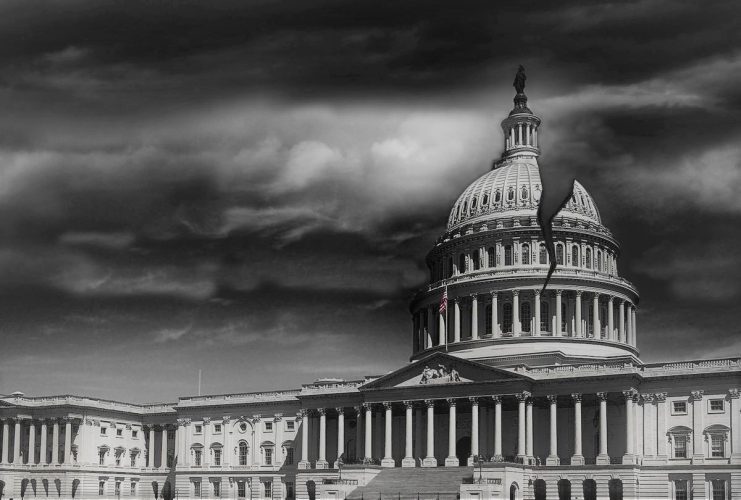
The US has been added to the list of backsliding democracies, which according to the International IDEA think tank showed “visible deterioration” starting 2019.
The International Institute for Democracy and Electoral Assistance, a Sweden-based organization makes its annual assessment using 50 years of democratic indicators. There are three categories where the organization places about 160 countries: democracies, including “backsliding” democracy, “hybrid” government, and authoritarian regimes.
According to a report released by the Global State of Democracy (GSoD) indices, “More than a quarter of the world’s population now live in democratically backsliding countries. Together with those living in outright non-democratic regimes, they make up more than two-thirds of the world’s population.”
The report also states that the “historic turning point” came during the election period, when Donald Trump questioned the legitimacy of the election results. Trump’s Administration claimed baseless allegations of electoral fraud and disinformation which eventually broke down the trust of the electoral process and gave rise to Trump’s supporters to storm the US Capitol in January 2021. These baseless allegations by the Trump Administration also had “spillover effects” in countries including, Brazil, Mexico, Myanmar and Peru.
IDEA- Secretary-General Kevin Casas-Zamora, called the visible deterioration of the US the “most concerning developments” in the 2021 report. He also noted, “The violent contestation of the 2020 election without any evidence of fraud has been replicated, in different ways, in places as diverse as Myanmar, Peru and Israel.” He has also said, “The pandemic has certainly accelerated and magnified some of the negative trends, particularly in places where democracy and the rule of law were ailing before the pandemic.”
In addition, the report also states that political activism has dropped in the US, mainly due to voter’s disenchantment and governments’ failure to address the people’s economic and social needs. The report cites that some states have enacted or are discussing voter access laws, which have been found to harm the minorities’ voter rights. These controversial laws have gained approval in Arizona, Florida, Georgia, and Texas. There were also reports in the USA and Poland, where doctors and staff were instructed not to speak to the journalists, and in some cases, those who defied ended up losing their jobs.
The report states that there have been criticisms about the early travel ban by the Trump Administration from China to the US, even though travel from Europe to the US was open. The report also states that one study conducted by the Centers for Disease Control and Prevention (CDC) shows that the European travel ban to the US in February 2020, when China’s travel ban was active, could have potentially saved “tens of thousands of lives”.
Ukraine and North Macedonia, who were on the list last year, were removed due to better situations, whereas Mali and Serbia left the list because they were no longer considered democracies. Myanmar shifted from the democratic to the authoritarian category. Mali and Afghanistan have been shifted to the authoritarian category from the “hybrid” democracies.
According to the report, the onset process of “backsliding” democracy is often gradual and takes an average of nine years from the onset until it leads to a democratic breakdown or returns to democratic health. The number of backsliding democracies has doubled over the past decade and along with the US, the list includes EU member states, Hungary, Poland, and Slovenia.
The report states that the pandemic has “preyed on weaker democracies and fragile states”. In addition, the trends of the backsliding countries have become “more acute and worrying with the onset of the pandemic”, with 70% of the global population living in either non-democratic or authoritarian regimes and only 9% living in highly functioning democracies. The report also said, “Some countries, particularly Hungary, India, the Philippines and the USA, have [imposed] measures that amount to democratic violations – that is, measures that were disproportionate, illegal, indefinite or unconnected to the nature of the emergency”
